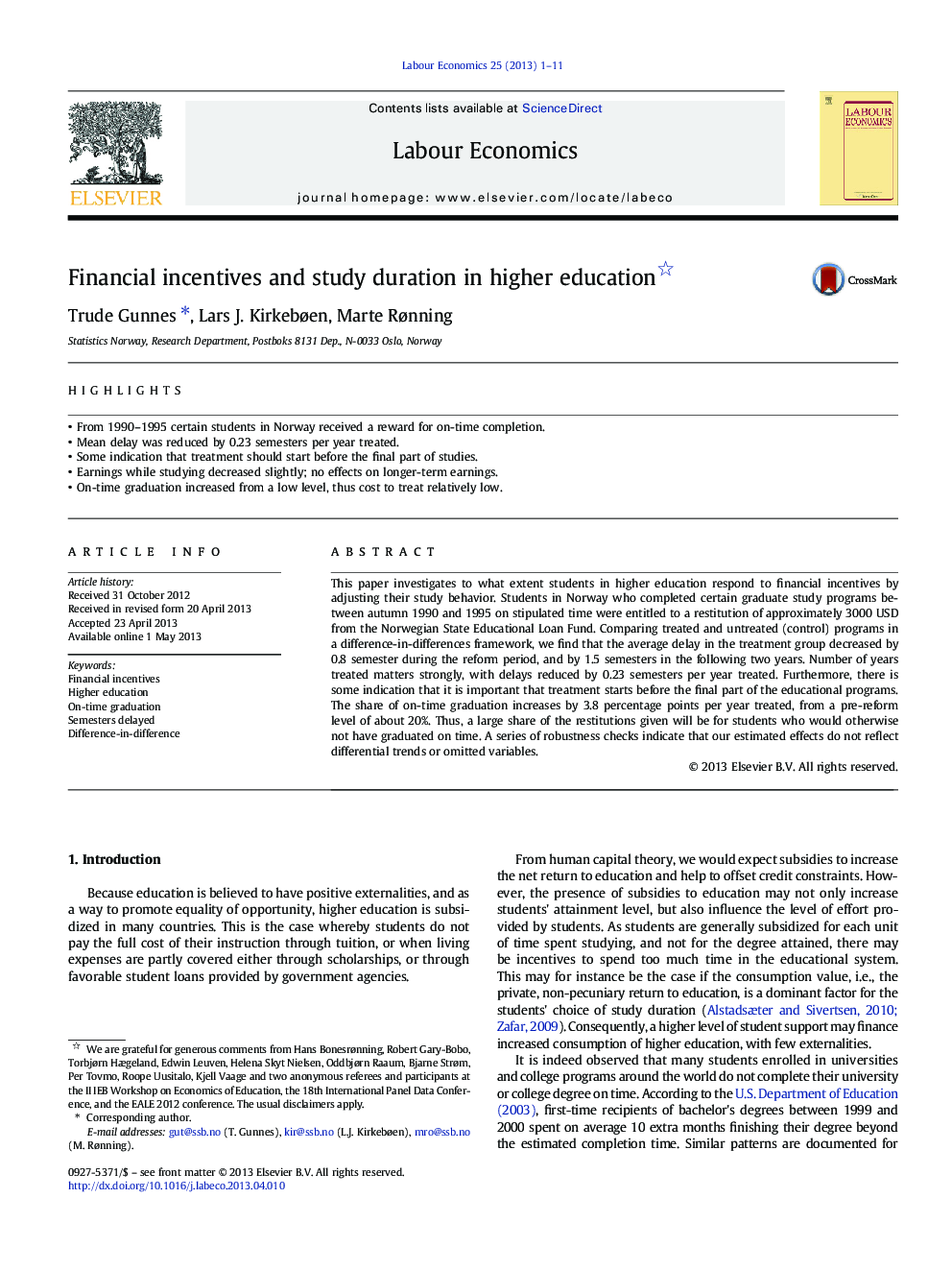| کد مقاله | کد نشریه | سال انتشار | مقاله انگلیسی | نسخه تمام متن |
|---|---|---|---|---|
| 971485 | 1479712 | 2013 | 11 صفحه PDF | دانلود رایگان |

• From 1990–1995 certain students in Norway received a reward for on-time completion.
• Mean delay was reduced by 0.23 semesters per year treated.
• Some indication that treatment should start before the final part of studies.
• Earnings while studying decreased slightly; no effects on longer-term earnings.
• On-time graduation increased from a low level, thus cost to treat relatively low.
This paper investigates to what extent students in higher education respond to financial incentives by adjusting their study behavior. Students in Norway who completed certain graduate study programs between autumn 1990 and 1995 on stipulated time were entitled to a restitution of approximately 3000 USD from the Norwegian State Educational Loan Fund. Comparing treated and untreated (control) programs in a difference-in-differences framework, we find that the average delay in the treatment group decreased by 0.8 semester during the reform period, and by 1.5 semesters in the following two years. Number of years treated matters strongly, with delays reduced by 0.23 semesters per year treated. Furthermore, there is some indication that it is important that treatment starts before the final part of the educational programs. The share of on-time graduation increases by 3.8 percentage points per year treated, from a pre-reform level of about 20%. Thus, a large share of the restitutions given will be for students who would otherwise not have graduated on time. A series of robustness checks indicate that our estimated effects do not reflect differential trends or omitted variables.
Journal: Labour Economics - Volume 25, December 2013, Pages 1–11